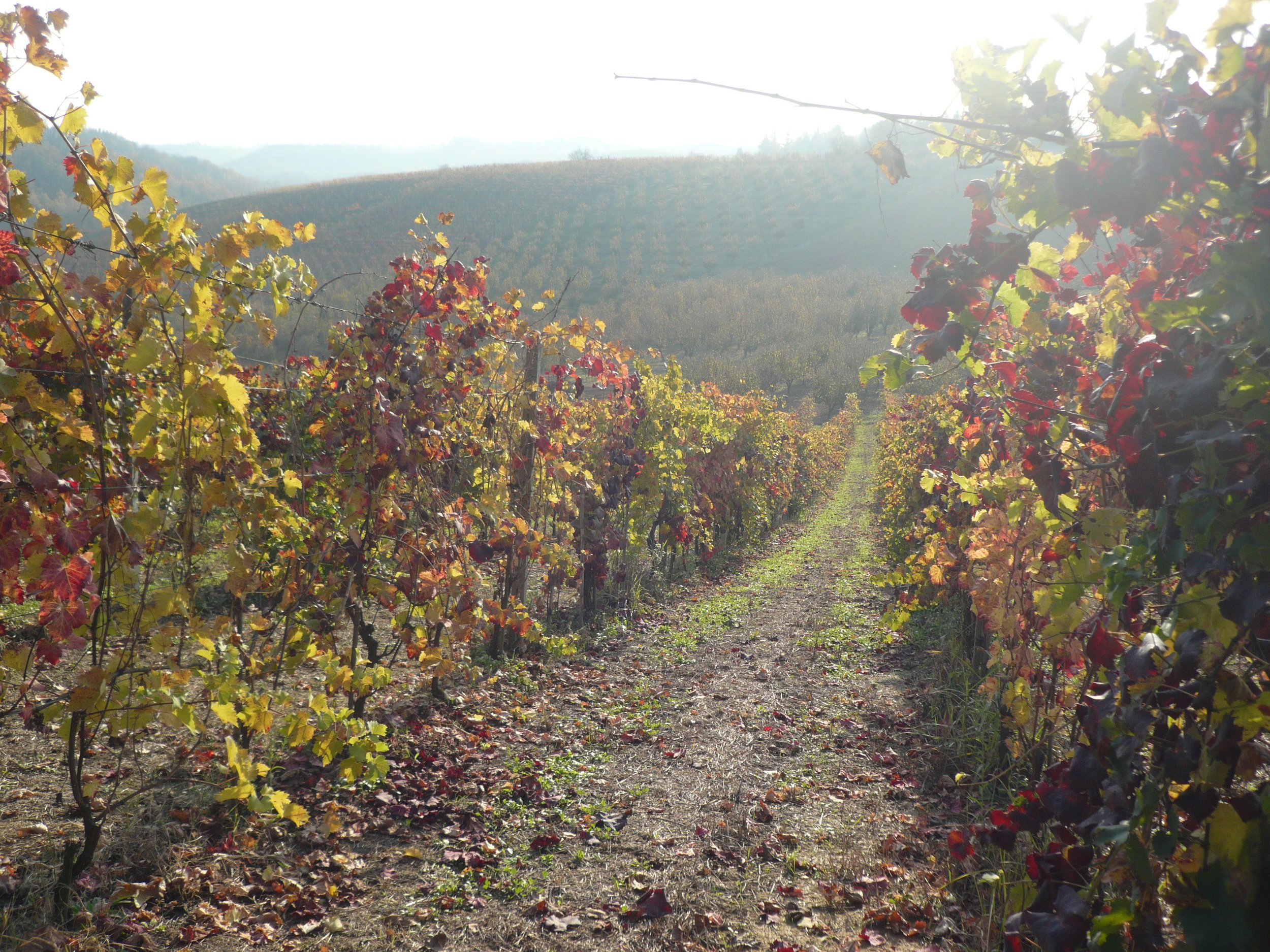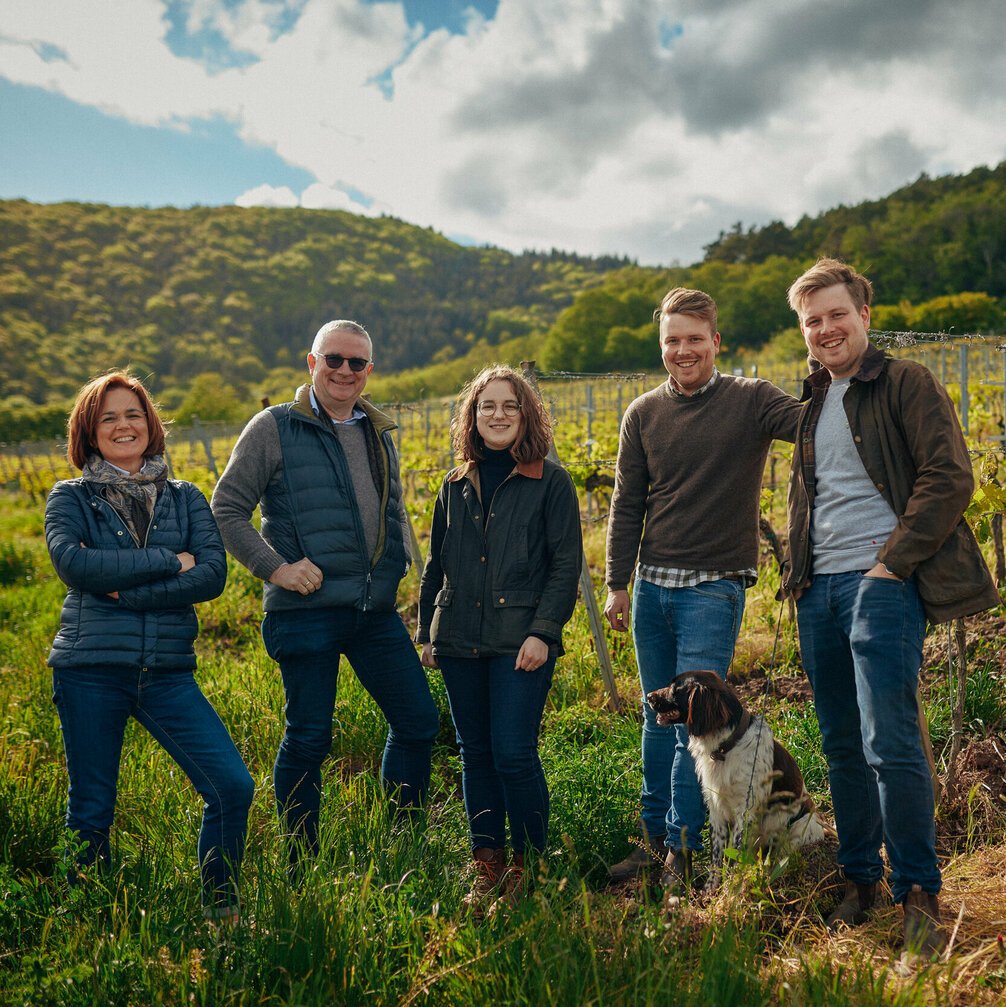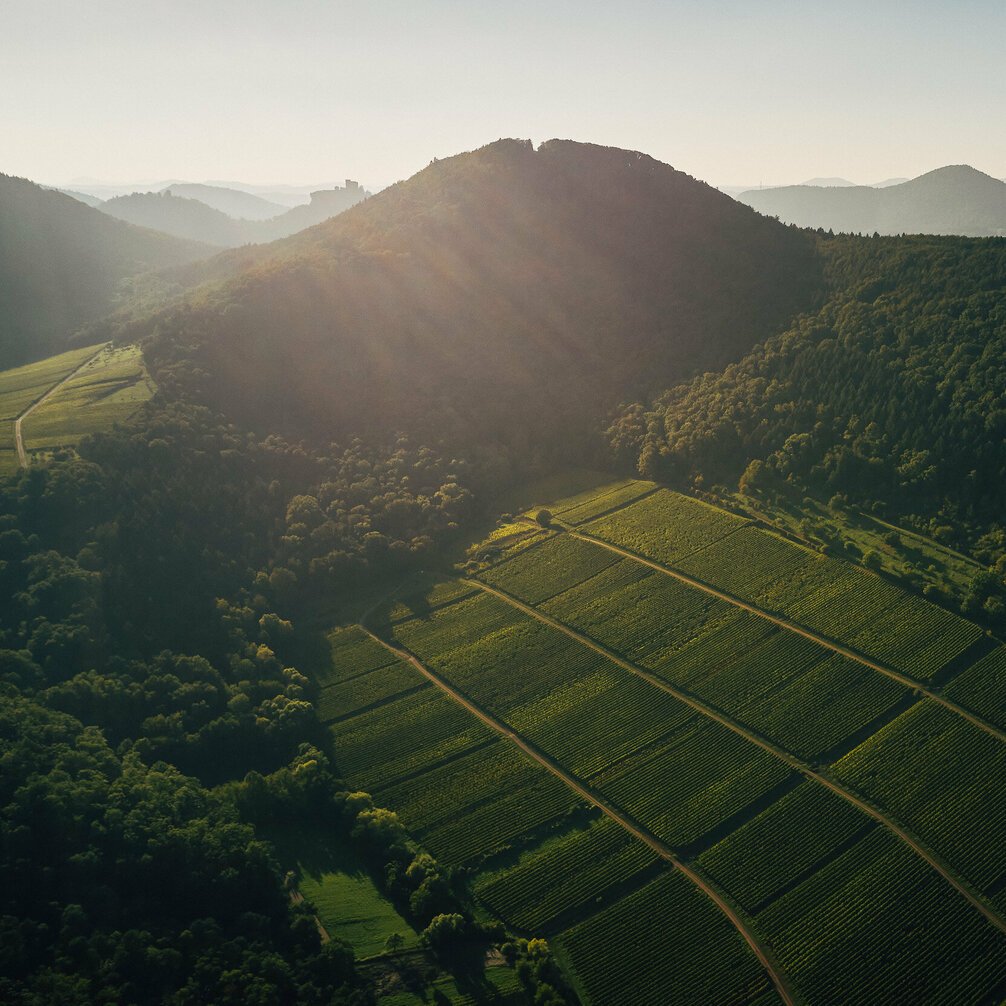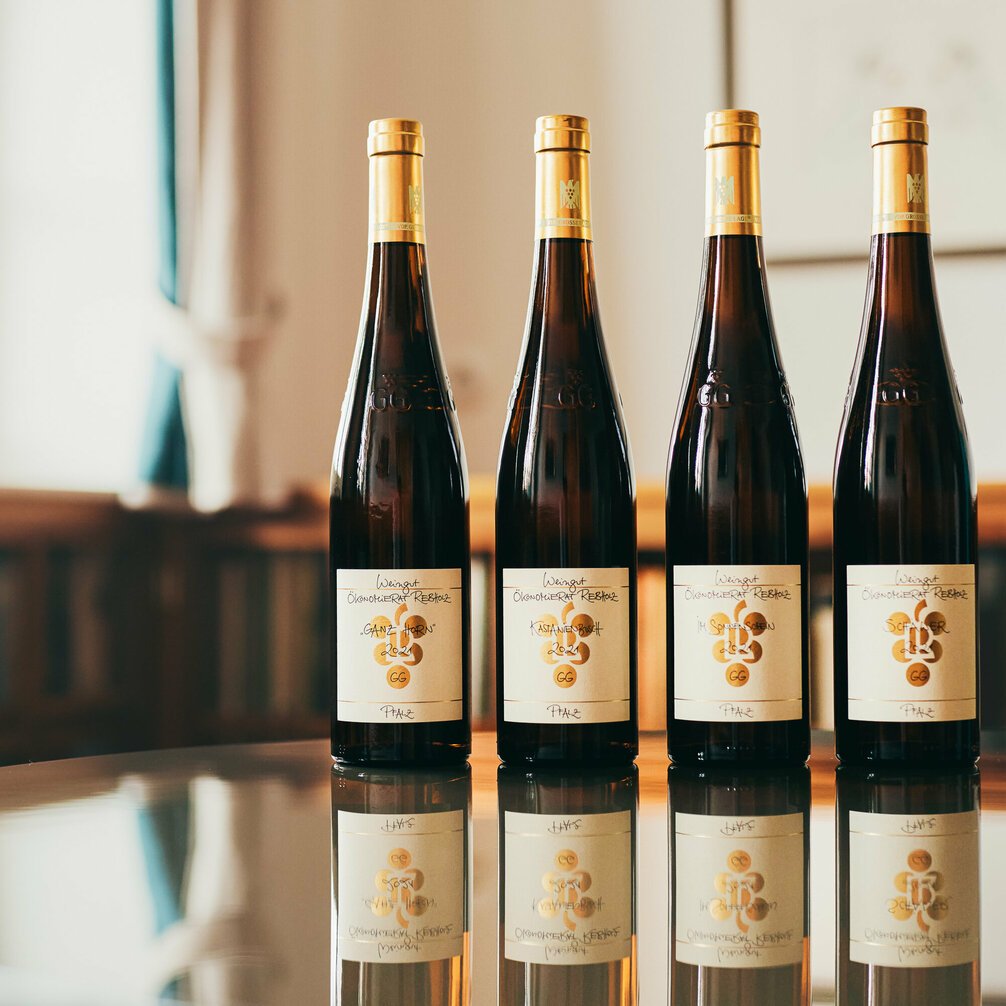
Rebholz
Pfalz, Germany



The Rebholz estate, in the southern Pfalz region of Germany, is a pioneer in organic and natural winemaking. The estate has been certified organic since 2005 and practicing biodynamic since 2006. However, even as far back as 1951, Eduard Rebholz (1889-1966), who received the title Ökonomierat, an honorary title conferred upon a deserving agriculturist, was commenting on his natural approach: "You will receive only natural wine from my cellar, wine that is the result of intense and loving cultivation of the vines and of similar vinicultural methods (no chaptalization, no artificial addition of a Süßreserve or similar fundamental structural changes that alter the native character of the wine and, in my eyes, mean that it is no longer a natural product."
This tradition continues with the current generation; Birgit and Hansjörg Rebholz together with their children Hans, Valentin and Helene work as close to nature as possible. In an effort to promote a healthy ecosystem and to protect the environment, they forgo the use of herbicides, synthetic fungicides and mineral fertilizers. They use only organic and biodynamic techniques and materials that promote healthy plants, helping the vines grow strong and prosper naturally. While these methods involve more time and effort, it is a price they are willing to accept in order to best protect and preserve the biodiversity within their vineyards
The earliest recorded history of winegrowing by the Rebholz family in Siebeldingen dates back to 1632. From beer brewer to village mayor, family members have held a wide range of titles over the years. The single constant: always at least one winemaker in the family. Around 100 years ago the Rebholz clan took the estate house, first built in the 16th century, as their family home. The Rebholz family only began bottling their wine following the Second World War, as an alternative to delivering entire barrels to local inns and restaurants
The role of soil in producing quality wine is so crucial that they have spent many lifetimes searching out the finest sites and then preserving and protecting them through organic farming practices. All fruit is picked by hand, in many cases long after their esteemed neighbors have completed their own harvest.
The Rebholz family believe that this work directly impacts the quality of their wines. Each terroir is defined by its own distinct native flora and fauna, the living organisms in the soil, the natural topsoil and a certain capacity on the part of the vines and their roots to tap into and work with these elements. By nurturing a more natural ecosystem in the soil, they help the vines better express the distinct character of their terroir in their fruit, and thus ultimately in the wines. Then as now, Rebholz wines are neither enriched nor de-acidified. They believe both practices spoil the wine's defining and natural character.
There are three distinct terroirs in the estate’s vineyards. In the “South-Pfalz”, where the estate is located, limestone terroir rules and it is ubiquitously present in one part of the Im Sonnenschein vineyard where Riesling, Pinot Noir, Pinot Blanc and to lesser amounts Pinot Gris, Gewürztraminer and Muskateller are planted. In the Ganzhorn, a small parcel of the same site, the estate's Riesling excels. It performs the minor miracle of exquisite peach, apple and apricot aromas sourced from colorful sandstone. Last but not least there is the Kastanienbusch with its rocky, rusty-red soil of the true primary rock from the lower strata of the “new” red sandstone. It simply produces some of the greatest dry Rieslings not only in Germany – but anywhere.
The estate’s 22 ha are farmed biodynamically with a production of about 10,000 cases.
Twins Hans & Valentin Rebholz did their apprenticeships at Jean Marc Roulot and Frederic Magnien in Burgundy, and Bodega Chacra in Patagonia, which not only added to their inspiration for Pinot Noir but had a huge influence on their Chardonnay wines.
Our Selections
Rebholz Riesling Sekt Extra Brut 2016
After selective hand harvesting, two thirds of the grapes were destemmed and gently pressed after a 24-hour maceration period. Pre-clarification by natural sedimentation of the lees was followed by fermentation in stainless steel tanks (the base wine saw 4 months of ageing on fine lees and 3 months of additional ageing in stainless steel tanks after racking). Once in the bottle, the wine was left to rest on the lees for more than three years before disgorgement. This is a truly elegant sparkler, with the classic herbal aromas of Rebholz Rieslings. On the palate, there’s a very fine acidity and an almost salty minerality.
Rebholz Pinot Blanc Estate Dry 2023
100% Biodynamically grown Pinot Blanc from loess/loam soils in the heart of the Pfalz region of southern Germany (Siebeldingen & Godramstein and some young vineyards in Im Sonnenschein GG).
After harvesting, the grapes spend 24 hours on their skins in stainless steel tanks before fermentation, adding extra roundness and depth.
This is an elegant Pinot Blanc with lovely aromas of green apple, fresh herbs and lemon balm. The palate is medium-bodied with fresh acidity. Certified Biodynamic.
Alcohol: 13% | Acidity: 5.1 g/l | Residual Sugar: 0.5 g/l
Rebholz Riesling Estate Dry 2023
The Riesling Estate is grown on mottled sandstone and quartz soils from Ganz Horn and other vineyards with the same red sandstone soils. The grapes are left on the skins for 24 hours before fermentation in stainless steel tanks
Ripe, mineral, aroma of citrus fruits, apricot and peach. This is a very perfumed vintage. The palate is typical of the colorful sandstone soils with fine minerality, structure, and elegance. Fresh and lively with a perfectly balanced acidity. Certified Biodynamic.
Alcohol: 12.5% | Acidity: 6.1 g/l | Residual Sugar: 0.3 g/l
Rebholz Birkweiler Riesling vom Rotliegenden 2023
The Riesling vom Rotliegenden is grown on red slate soils in the village of Birkweiler. In classic Rebholz fashion, the grapes are left on the skins for 24 hours before fermentation in stainless steel tanks.
Ripeness, minerality, fruit and acidity are impeccably balanced here. Very typical for the vineyard site, the aromas from the red slate show hints of smoke, pepper, flint, hay, tea, and herbs. The Riesling’s fruit-driven aromas of citrus, apple, peach, and apricot make their way through the dense minerality. Like the rest of the Rebholz lineup, this wine has a huge ageing potential. A perfect introduction to the single-village wines.
Alcohol: 13% | Acidity: 7.7 g/l | Residual Sugar: 0.2 g/l
Rebholz Pinot Blanc Im Sonnenschein GG 2023
Excellent, south-facing Grand Cru vineyard consisting of variegated soils, from shell limestone and colored sandstone to gravel and loam. The vineyard is planted to Riesling, Pinot Noir, and Pinot Blanc, with the Pinots planted to limestone. The soft limestone soils add powerful, Burgundy-like structure to the Pinot Blancs and Pinot Noirs while the Rieslings have nuanced fruit notes and excellent minerality. Im Sonnenschein means “in the sunshine.”
After selective hand harvesting in several passes, the grapes were destemmed. After 24 hours of maceration, the grapes were gently pressed and clarified by natural sedimentation of the lees. The must was then fermented in stainless steel tanks. After 5 months of aging on the lees, the wine was racked in March 2023 and bottled in June 2023.
Typical of a wine from this terroir is the smoky and spicy aroma created by the shell limestone soil. In the nose, the old Pinot Blanc vines bring out the mellowness and a fruitiness reminiscent of ripe pears and lemon peel, complemented by atouch of flint. The full ripeness of the absolutely healthy grapes from vines, some of which are almost 40 years old, is the basis of this world-class Burgundy wine. On the palate, it is very concentrated and ripe, leaving a round, silky impression. The interplay of minerality and grape ripeness is evident in the distinctly salty, mineral style that gives the wine a very long finish.
Alcohol: 13% | Acidity: 5.3 g/l | Residual Sugar: 0.5 g/l
2021 and 2022 Vintages Also Available
Rebholz Riesling Ganz Horn GG 2023
A choice, small, Grand Cru parcel within Im Sonnenschein consisting of colorful sandstone, gravel and quartz. Geologically much younger than the surrounding Im Sonnenschein, the gravel and sandstone are alluvial. Riesling excels here with distinct and exquisite peach, apple and apricot aromas, along with salty acidity and amazing length.
This vineyard is between 160 and 225 meters and has a 5 to 20% gradient. The section of the vineyard, known as “Siebeldinger Ganshorn”, is a south facing vineyard side protected from cold winds west of the “Deutsche Weinstraße”. The difference between “Im Sonnenschein” and “Ganzhorn im Sonnenschein” is the type of soil. While “Im Sonnenschein” has limestone soil, “Ganzhorn im Sonnenschein” is colorful sandstone.
Typical for a wine from this vineyard side is the smell of hot summer days when the first raindrops fall. The wine has a salty acidity and amazing length. The strong mineral and spicy aroma is typical for colorful sandstone it also has elegant citrus notes in the nose. A really complex and elegant wine. JS:98
Alcohol: 12% | Acidity: 7.3 g/l | Residual Sugar: 0.4 g/l
Rebholz Riesling Kastanienbusch GG 2023
Kastanienbusch lies to the west of Birkweiler. At 240 to 300 meters in altitude, this is the highest Grand Cru vineyard in the Pfalz and benefits from excellent air circulation and exposure. Its rocky, iron-rich, rusty-red soil mixed with rare red slate, sandstone, and marl is shallow with poor water retention.
The Kastanienbusch is widely considered the finest vineyard of the southern Pfalz and was recognized as such generations ago. Rieslings from Kastanienbusch feature wonderfully spicy, flinty and herbal notes with delicate fruit qualities, persistence and finesse. Kastanienbusch, meaning “chestnut tree,” is named for the for the trees that grow perfectly nearby.
Rebholz has just over 2 ha of old vines in Kastanienbusch on a a 40% gradient.Since 2006 the vineyards are farmed biodynamically. The complex mutual reactions in the ecosystem create remarkable wines and support a better sustainability in this distinctive wine growing region.
After selective harvesting, the grapes are destemed and rest on the skins for 24 hours. Clarification happens as the wine naturally settles. The wines ferment reductively in stainless steel tanks. The wine was bottled after 6 months on the lees.
The wine shows a perfect balance between ripeness and minerality, fruit and acidity as well as density and elegance. Kastanienbusch typically shows mineral aromas – smoke, pepper, flint, hay, tea and spices as well as typical aromas of Riesling – citrus, apple, peach and apricot. The palate has the same balance between soil and grape variety: the soil creates the mineral, spicy notes. The wine – like all Rebholz wines – has a high aging potential. JS:99
Alcohol: 12.5% | Acidity: 6.4 g/l | Residual Sugar: 0.3 g/l
Rebholz Pinot Noir Tradition R 2021
Rebholz harvests it’s Pinot Noir Erste Lage and Grosse Lage sites with 30+ year old vines farmed organically and biodynamically. The soils around Siebeldingen are very diverse and the Burgundy plots sits on shell limestone and calcareous loess from the Triassic period (220 million years ago). The limestone is made of marine sediments with plenty of marine fossils.
Bunches are hand selected and destemmed with some whole bunches reserved for later. The mash is kept cool until spontaneous fermentation begins. The purpose of this "cold maceration" is to capture as many of the Pinot Noir and vineyard site-specific aromas as possible prior to fermentation. The maceration during alcoholic fermentation should preserve the freshness and fruitiness of the variety while extracting color and substance from the grape skins. This is further enhanced by the addition of whole grapes, as intercellular fermentation takes place in the intact berries.
Pressing usually occurs after three weeks and the wine then goes into barriques (30% new) for 19-20 months. Oak from Germany and France are selected to support but not dominate the wine. The most lees are separated by natural sedimentation before aging in barriques for 19-20 months. During the nearly two years of aging, malolactic fermentation also takes place spontaneously. The wine is bottled unfiltered.
Dense and complex, with beautiful character. Scents of of white currant, sour cherry, and pepper, with an herbaceous spicy component. Cool, juicy, elegant and long on the finish. 12% alc., 0.3 g/l RS, 5.3 g/l acidity








